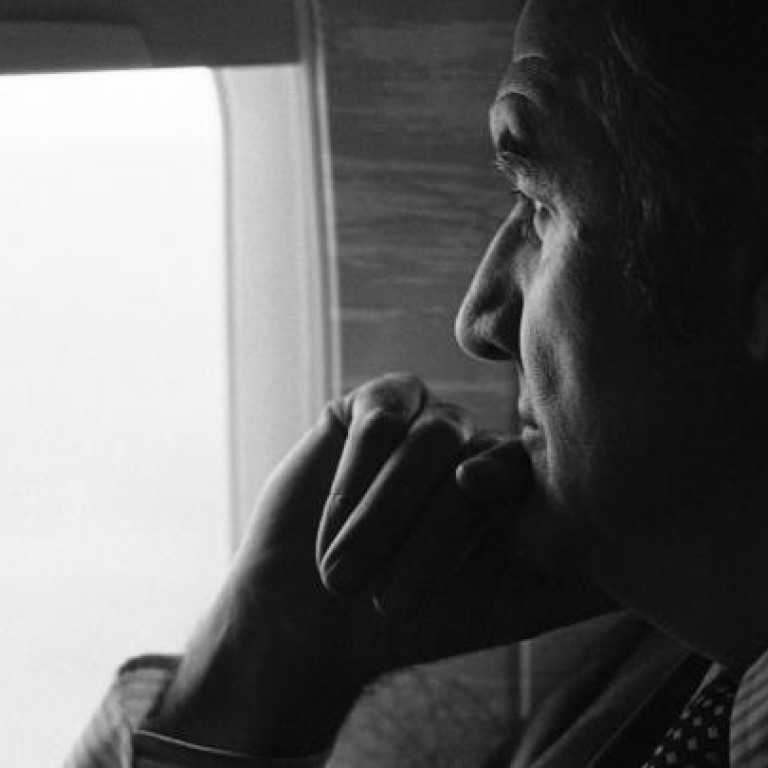
George McGovern an unrepentant liberal to the end
George McGovern took on Richard Nixon and the Vietnam war, only to suffer a humiliating defeat, but he stayed true to his Methodist roots
George McGovern, a proud liberal who argued fervently against the Vietnam war as a senator from South Dakota and suffered one of the most crushing defeats in presidential history against Richard Nixon in 1972, died before dawn yesterday. He was 90.
A spokesman for McGovern's family said he died at a hospice in Sioux Falls, surrounded by family and lifelong friends.
A decorated second world war bomber pilot, McGovern said he learned to hate war by waging it. In his disastrous race against Nixon, he promised to end the conflict in Vietnam and cut defence spending by billions of dollars. He helped create the Food for Peace programme and spent much of his career saying the US should be more accommodating to the former Soviet Union.
Never a showman, he made his case with a style as plain as the prairies where he grew up, often sounding more like the Methodist minister he'd once studied to be than a senator and three-time presidential candidate.
And McGovern never shied from the word "liberal", even as other Democrats blanched at the label and Republicans used it as an epithet. "I am a liberal and always have been," McGovern said in 2001. "Just not the wild-eyed character the Republicans made me out to be."
Americans voting for president in 1972 were aware of the Watergate break-in, but the most damaging details of Nixon's involvement wouldn't emerge until after election day. McGovern tried to make a campaign issue out of the bungled attempt to wiretap the offices of the Democratic National Committee, and he called Nixon the most corrupt president in history, but the issue could not eclipse the embarrassing missteps of his own campaign.
McGovern was tortured by the selection of Missouri senator Thomas Eagleton as his running mate and,18 days later, following the disclosure Eagleton had had electroshock therapy for depression, the decision to drop him despite having pledged to back him "1,000 per cent".
After a hard day's campaigning - Nixon did virtually none - McGovern would complain to those around him that nobody was paying attention. With Sargent Shriver as his running mate, he went on to carry only Massachusetts and the District of Columbia, winning just 38 per cent of the popular vote.
McGovern's campaign, nevertheless, left a lasting imprint on American politics. Determined not to make the same mistake, presidential nominees have since interviewed and intensely investigated their choices for vice-president.
George Stanley McGovern was born on July 19, 1922, in the farm town of Avon, South Dakota, the son of a Methodist pastor.
After the war, McGovern joined the Democratic Party and in 1956 won an upset election to the House, where he served two terms and left to run for Senate. He made a second Senate bid in 1962, unseating senator Joe Bottum by just 597 votes.
In his first year in office, McGovern took to the Senate floor to say the Vietnam war was a trap that would haunt America - a speech that drew little notice.
McGovern first sought the Democratic presidential nomination late in the 1968 campaign, saying he would take up the cause of the assassinated Robert Kennedy. He finished far behind vice-president Hubert Humphrey, who won the nomination.
In 1972, McGovern sought nomination again. Initially considered a longshot against Edmund Muskie of Maine, McGovern became the first candidate to gain a nominating majority in the primaries before the convention.
It was a meeting filled with wrangling and speeches that verged on filibusters. By the time McGovern delivered his speech accepting the nomination, it was 2.48am, and with most of America asleep, he lost his last and best chance to make his case to a nationwide audience.
Defeated by Nixon, McGovern returned to the Senate and pressed there to end the Vietnam war while championing agriculture, anti-hunger and food stamp programmes in the US and food programmes abroad.
"I want to live long enough to see all of the 300 million school-age kids around the world who are not being fed be given a good nutritional lunch every day," McGovern said in 2006.
Defeated in his bid for a fourth Senate term in the 1980 Republican landslide that made Ronald Reagan president, McGovern went on to teach and found a liberal political action committee.
McGovern was married to Eleanor McGovern, who died in 2007. They were married for 64 years and had four daughters and a son.
